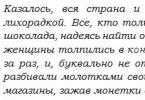In films where there is a role of an Armenian, he will definitely say: “jan”. What does jan mean in Armenian? How is this word used? Let's start with dictionaries.
What do dictionaries say
Jan is translated from Armenian into Russian as dear. There are discussions among translators on the topic: “What does jan mean in Armenian and what is its origin”. There are two opinions:
- Turkic origin of the word;
- Armenian origin of the word.
These two groups belong to different language families: the Turkic peoples are part of the Altaic, and the Armenians are part of the Indo-European. It should be noted that all Eastern peoples use this word in different variations. In many nations, jan is the soul or life. This suggests an earlier source for the word. Much clarifies the appeal for clarification to the surviving ancient Indo-European languages.
In the Farsi language, especially in its Old Persian version, we see much more meanings of the word jan. These are, for example, the following:
- a heart;
- a life;
- force;
Comparison with Hindi confirms the diminutive form of jan added to the name. Many names in India end in ji or jan.
It can be argued against the Turkic version that the word is used only by those peoples who encountered the Indo-European culture, in particular, the Armenian one.
What native speakers say
It is interesting to know the opinion of the native speakers themselves about what jan means in Armenian. In Armenian culture, when a person is called dzhan or dzhana, it is understood that the interlocutor is close in spirit, this is a nice and respected person. Communication with him is pleasant.
But if you ask bluntly what jan means in Armenian, the answer will not be immediately. Someone will say - this is the soul, and someone will answer - life. Literally, janya [janya] means the body. The ancient word in Sanskrit means man. The Bible tells how God made a body out of dust, breathed into it the breath of life, and Adam became a soul. Apparently, the roots of the word go so far that many nations consider the word their own.

Many people talk about the ambiguity of the translation of jan. From Armenian to Russian, most often it means dear. In everyday life, the word is added to the names, mother is also addressed in this way. And they can simply say to the girl: “Jana, please give me that thing.” In this case, it becomes a call. You can hear in the market: “What are you selling, jan?” It is a warm and cozy, peaceful word.
Vovijan, don't eat cilantro
In the movie "Attention, turtle!" there is an Armenian boy - an excellent student Vova Manukyan. He is the instigator of various experiments and generally the first boy in the class. When his parents leave for work, he stays with his grandmother. Grandmother hung boxes on the balcony in which she grows greenery instead of flowers. What is Armenian cuisine without herbs! It is called in the Caucasus men's bread.
Vova loves to eat fresh fragrant grass, but the grandmother notices everything and affectionately says to her grandson:
Vovijan, don't eat cilantro.
To which the grandson invariably replies:
Nobody eats!

This is repeated throughout the film during all the scenes filmed on the Manukyans' balcony.
Jan in Armenian is a diminutive prefix to a given name. You can translate the words of the grandmother like this: "Vovochka, do not tear the cilantro."
If you call a grown man that, he will be puzzled. Jan is a word for very close ones. This is an analogue of the Russian word cute.
"Mimino"
The difference in the traditional perception of the world among Armenians and Georgians is shown by the most talented director G. Danelia. In the film "Mimino", the explosive hero V. Kikabidze first does something, and then thinks. Nearby, the peace-loving hero F. Mkrtchan smooths out his temper: "Valik-jan, I'll tell you one smart thing, but don't be offended."

The address jan in this case means respect. The interlocutor warns that in no case does he want to offend Valiko or teach him about life. It is known that Frunzik Mkrtchyan said that it is ugly to teach a person, you need to help him. But do it in such a way that he does not know about it.
As they say in Armenia
So, what does jan mean in Armenian? There is a joke that in Armenia you go out into the street and see your reflection in a mirror. By the way people can be judged on the impression they make. A passer-by will stop and ask how to get to such and such a street. In this case, he will use different appeals to a woman:
- Kur-jan - a visiting young man will ask. He called me a sister - it means that he thinks he is young enough.
- Akhchik-jan - passers-by consider you younger than themselves, they called you daughter.
- Morkur-jan - the girl will say, giving way. Called aunt. It's a pity.
- Mairik-jan, let's help - a man, who looks the same age, will rush to pick up spilled vegetables from a fallen package. So, it’s bad business - he called mother. Old age is not far off.
- Tatik-jan, how can I help? - Affectionately asks a new neighbor. Called grandma. Ah, neighbor, ah, jan.
Of course, along with these appeals there are generally accepted official paron and tikin, which means lady and master. But they are kind of cold, aloof. Tikin implies that a woman is a draw, not needed or someone else's. Paron - from the word baron, brought by the crusaders. In Russian, the analogue is barin. So they can say to a person, ending disagreements in a dispute. Let him know that they do not consider him family. Don't tell him jan.
Translation from Armenian should take into account the mentality of the nation. Armenia is a country of customs. By and large, all Armenians are relatives. They remember this and try to preserve the ancient traditions that regulate relations and have long become the core of society.
Ist ein männlicher Vorname. Er ist die niederländische, norddeutsche, sorbische und eine häufige tschechische, polnische und skandinavische Form von Johannes. Im englischsprachigen Raum ist Jan auch als weiblicher Vorname gebräuchlich, als… … Deutsch Wikipedia
Jan- ist eine slowakische Form des männlichen Vornamens Johannes. Namensträger Ján Babjak (* 1953)
Jan- /jan/; for 1 also Du., Ger. /yahn/, n. 1. a male given name, form of John. 2. a female given name, form of Janet. * * * (as used in expressions) Brueghel Jan the Elder Jan Amos Komenský Dussek Jan Ladislav Eyck Jan van Gossart Jan Jan Mabuse Jan… … Universalium
Jan- m. Adaptación del nombre "khan", defendida como la más conforme a la pronunciación de esta palabra en su lengua original. ⇒ Can, kan, Khan. * * * Jan. m. Cuba. Vara de madera dura, rematada en una punta de hierro, que se emplea para ahoyar en la… … Enciclopedia Universal
Jan- [ʒɑ̃] n. m. 1546; probablt de Jean, prénom ♦ Au trictrac, Coup donnant ou ôtant des points; chacun des deux compartiments attribués à un joueur. Petit, grand jan. ⊗HOM. 1. Gens, gent. ● jan nom masculin (de faire jean, faire deux points au… … Encyclopédie Universelle
Jan- o JAN puede referirse a: Nombres propios: Una variante de John, usada especialmente en Dinamarca, en el norte de Alemania y en lenguajes de la europa del Este (en Eslovaquia, Ján). En inglés, apócope de Janice o Janet. En catalán, nombre propio… … Wikipedia Español
Jan- 1. (jan) s. m. Terme du jeu de trictrac, qui désigne tous les accidents par lesquels on peut gagner ou perdre des points ; les jans sont donc tres nombreux. 1° Le petit jan, celle des deux tables sur laquelle on range les dames en commençant la… … Dictionnaire de la Langue Française d "Émile Littré
Jan- als Abkürzung bezeichnet: Jackson (Mississippi), IATA Code des Flughafens in den USA Japan Article Number, eine Produktkennzeichnung für Handelsartikel in Japan Joint Army/Navy Phonetic Alphabet, eine Buchstabiertafel Jan ist: Januar,… … Deutsch Wikipedia
ǰan- Jan (géorgien) ჯან Jan Graphies Graphie (((graphie))) Capitale (((capitale))) Bas de casse (((bas de casse))) Isolée (((isolée))) ... Wikipédia en Français
Jan- m, f 1 (m.); pronounced /jan/ Dutch, Low German, Scandinavian, Polish, and Czech form of JOHN (SEE John). 2 (m.); pronounced /dzæn/) English: a revival of Middle English Jan, a byform of JOHN (SEE John). The forms Johan and … First names dictionary
Jan.- Jan. Jan. written abbreviation for January * * * Jan. UK US (also Jan) WRITTEN ABBREVIATION for January … Financial and business terms
Books
- Jan Jansen, Tonko Dop. or over forty years, Jan Jansen has been designing and selling shoes. His designs include the clog of 1969, the bamboo shoe of 1973 and the floating wedge of 1989. He has worked with some of…
To the question Translate from Armenian ... How is translated from Armenian "jan" (in Russian manner). For example Dima jan given by the author to be simple-hearted the best answer is ... jan - does not translate in any way .. this is a form of polite address to the interlocutor, to a person .. There are no analogues in Russian or they do not come to mind .. approximately respected, beloved, sweet, kind and a bunch of synonyms, depending on circumstances. .
... and for the sake of a joke, they have now changed to -VASYA .. -ara Vasya, why, yes ...
Answer from Embassy[active]
Expensive
Answer from chevron[newbie]
HOW DOES KHEDAR JAN TRANSLATE?
Answer from Evgeny Kravtsov[active]
definitely in everyday life in 2016, in Sochi, Armenian-speaking people use this word only in a respectful form. according to others is not possible. I agree that the equivalent is the soul!
Answer from Evgeny Pleshakov[newbie]
soul-?????....DEAR-??????....dear--??????? ?
Answer from Ilya Sintsev[newbie]
In the Armenian language, when a person is called jan, it is understood that this refers to a congenial, sweet, pleasant and respected interlocutor.
From the Turkish language "janym" is translated as "soul". Azerbaijanis' UU as "soul" or "life". These are languages from the Turkic group.
In the Indo-European family of languages, which is the most widespread in the world, there is an Iranian group. The predominant and most ancient language in it is Farsi or Persian. In the Old Persian language, the word "jan" has even more meanings than in the Turkic group. This is both "soul", and "life", and "heart", and "spirit".
As you can see, despite the language differences, the meanings of the word "jan" have a similar meaning.
Answer from ARMENIAN HANDY[newbie]
Marina-Karina Melkumyan I DON'T AGREE WITH YOU!! THIS SOUL - ????, AND IT'S EXPENSIVE - ????????.
THERE ARE ARMENIAN WORDS THAT ARE NOT TRANSLATED.
BUT THIS IS NOT A BAD WORDS, YOU CAN SAY SOUL!!))
Answer from AMERICA AFRAAFRA[expert]
sea
Answer from Marina-Karina Melkumyan[newbie]
Jan is a dear soul (th). Love Mart is a good person.
Answer from A.UMAROV[guru]
jan and aka are Turkic words. jan-soul, aka - high, venerable
Answer from Zuhra[newbie]
I agree with Alexander!
Jan is the soul! "Dear" in translation. ,
Answer from Dzantai[newbie]
Jan is the soul. Definitely. But now it is only a form of polite and respectful treatment.
Answer from Milaniyamiila milaniyamiila[expert]
dear - used to give a diminutive character to the word
Answer from Xenia Kupfer[guru]
If you trust Platonov, then the soul.
Answer from Korolev Alexander[guru]
"jan" is translated soul - it's literally. And in a figurative sense - dear (th), beloved (th), etc. (I didn’t think that what I heard in the army 30 years ago would ever come in handy)
That is, Dima jan - dear Dima




